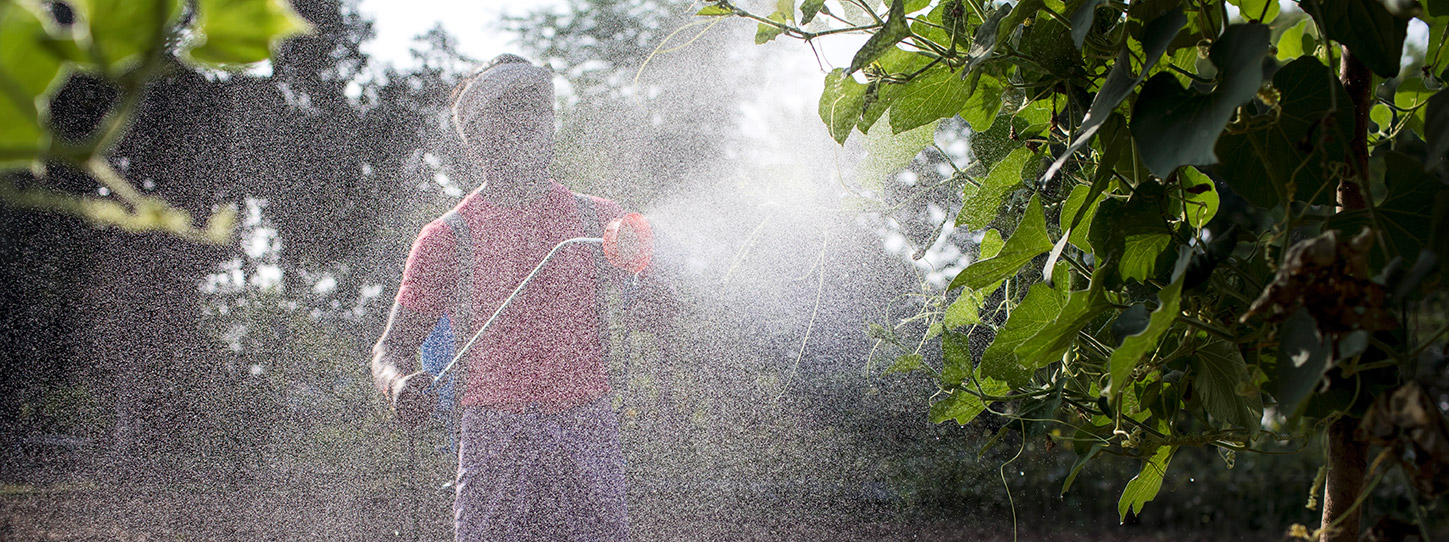
SAF-BIN was able to achieve 10 months food security for 4180 smallholder farmers in Bangladesh, India and Nepal. After the project implementation farmers are getting double the food item in their food basket and 273 Smallholder Farmer Collectives created in 90 villages by the project are functioning efficiently all the three countries.
SAF-BIN team from Bangladesh, India and Nepal gathered together at Vienna, Austria to document the final reporting and achievements of the project. The project was able to promote local food and nutritional security through adaptive small scale farming in South Asia in the context of Climate Change.
16 project personnel from program and documentation team including Caritas Austria worked on documenting the process and learning of the project. Team discussed the nature, content, guidelines and formats of different documents aimed towards exhibiting the achievements of the project.
Hosted by the project partner BOKU, University of Natural Resources and Life Science, 8 days workshop from 15-22, 2016 was facilitated by Mr. Pranab Choudhary in coordination with BOKU documentation personnel Ms. Romana and Ms. Barbara.
The team finalised the Students Research Summary document, a compilation of students research conducted at the SAF-BIN project. 30 student’s research from Bangladesh, India and Nepal is collated in this document. The research summaries are based on the prominent problems faced by the farmers of the SAF-BIN project. The summary defines the problem, its cause, methodology and recommendation to solve the problem.
Trial Matix is a culmination of learning’s from the On-Farm Adaptive Research conducted by the farmers in their field. The document will find the trial matrix of all the three countries, its problems, treatments, solutions and recommendations for its upscaling across similar agro-ecological conditions.
Model Fact Sheet is a consolidation of successful trial combinations emerged through On-Farm Adaptive Research. These models are effective solutions to enhance food security of the Smallholder Farmers in the context of climate change.
Best Practices document aims to cover the key innovation and best practices emerged from the project. The document will showcase the innovative solutions developed and tested by the smallholder farmers during the project. These unique solutions have emerged as knowledge products of SAFBIN.
Process Documentation document compiles the processes followed in the SAF-BIN project. This document provides a comprehensive analysis of the approaches and processes followed by the partners in Bangladesh, India and Nepal in achieving the project goals.
Discussions were also held on preparation of final reports as per the requirement of the European Union. Each responsible partners were allocated set of responsibilities and actions to be completed and submitted in adherence to the European Commission requirements.
Caritas Austria provided a sharing platform during the press event to SAF-BIN team and the African team who are running a Agriculture program to have informal sharing. During the event India team presented a booklet of SAF-BIN intervention in the Agrinatura Science days 2014 to Caritas Austria Secretary General, Mr. Christoph Schweifer and Mr. Michael Hauser, Director of the Centre for Development Research, BOKU University.